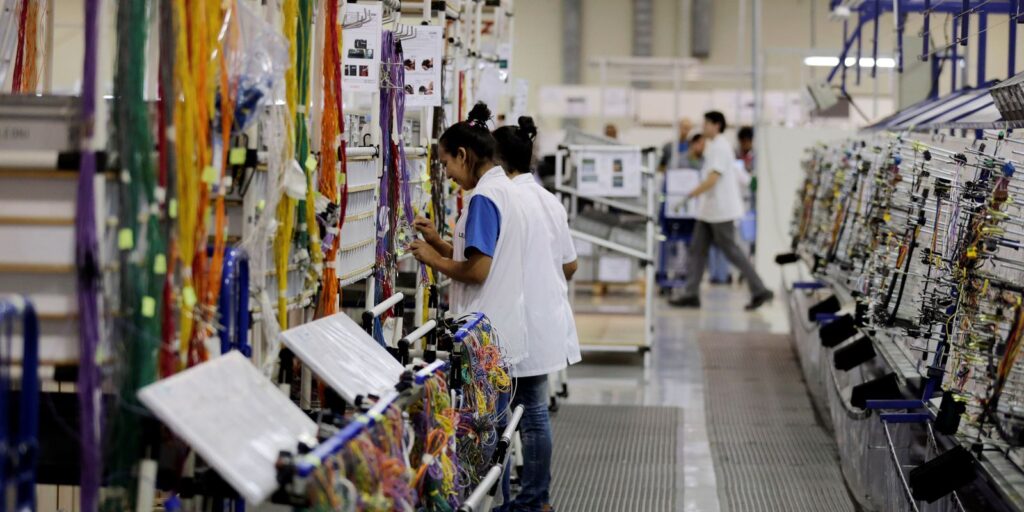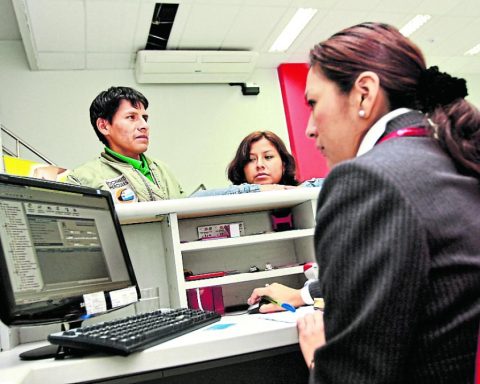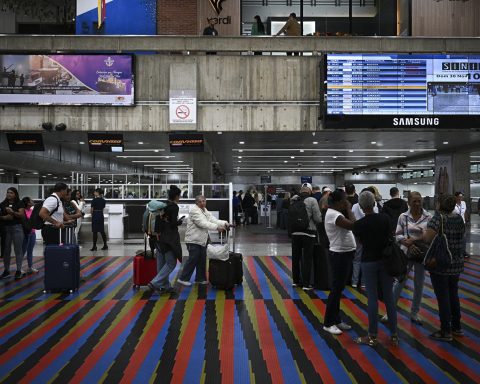Faced with the rainfall that has been recorded this past week in the Metropolitan Region, and that which is expected for tomorrow, Aguas Andinas made a call to make good use of the sewerage network of more than 11,000 kilometers that transports wastewater from the entire Metropolitan Region to decontaminate and clean them in the La Farfana and Mapocho Trebal biofactories. The company’s teams annually remove large amounts of foreign elements that cause serious collapses in its operation, including masks, diapers, plastic, and other elements that enter from the bathrooms and kitchens of the houses and also tires, bricks, cement and sticks. , which enter through the covers located on public roads, from where the garbage is thrown directly into the pipe.
To highlight the importance of this problem that affects numerous districts in the region and call for their care, the Director of Clients of Aguas Andinas, Eugenio Rodríguez, together with the Mayor of Independencia, Gonzalo Durán, presented the technological equipment (acoustic systems and remote surveillance) that Aguas Andinas deploys to maintain and clean the sewage system, being essential to have the support of the population for its proper use.
“Each year we remove more than 2 thousand tons of garbage from the entire network. The complex thing is that since the sewage system is underground and since it cannot be seen, it is forgotten that it exists and the importance it has in sanitary terms. For this reason, we want to be emphatic that it depends on everyone to ensure the proper functioning of this network that allows us to send all the city’s wastewater to our biofactories where 100% of it is purified, making us one of the only countries of Latin America to do so”, explained Eugenio Rodríguez.
In this regard, the mayor of the municipality made a call to take care of the wastewater collection network: “The sewer system is not a dump. There are people who enter elements that saturate the system such as diapers, wipes, masks, among others. If sewage is misused, negative effects are produced in the community. For example, oil is an element that greatly affects and clogs the ducts, and it is common to find it throughout the network. Any bad practice ends up affecting the citizens, so we ask, especially the neighbors, to notify us if this type of problem arises -especially now that we are waiting for rainfall-, to continue working collaboratively with Aguas Andinas in prevent this type of situation from affecting daily life and health security. We as a municipality have the power to generate control to ensure proper use of the sewer system. For this reason, the call is to responsibility, the sewage system is part of our daily life and it is necessary to take care of it”.
Increase in the amount and variety of waste in the network
At the meeting, the staff of Aguas Andinas showed the variety of waste that has been found in the network in recent weeks, making a call to prevent these practices from continuing to repeat themselves.
“We have detected unusual materials and residues in the sewers. For example, a bus tub or cases like that of people who, after cleaning a cement truck from the inside, poured the water mixed with remains of the material into the sewer and blocked it because it solidified. All these elements that greatly hinder and obstruct the flow of sewage can cause collapses in the network and flooding on public roads, “Rodríguez explained.
According to data from Aguas Andinas, unfortunately during 2022 it is expected to exceed the amount of waste collected annually, since to date an average of 186 tons per month has been removed. On a daily basis, the company’s teams work with special trucks with vacuum cleaners and robots to maintain the extensive sewage network in optimal conditions.
Precautions on rainy days
Additionally, although the rains are becoming scarcer in the region, the environmental services company warned users that on rainy days, maneuvering the sewer covers can lead to overflows of rainwater mixed with sewage towards the outside and, at the same time, represent a risk to the health and safety of people.
For the same reason, they made a call to avoid this bad practice and thus maintain the care of this health infrastructure to avoid overflows on public roads and -eventually- in homes. It should be remembered that the sewerage network is designed and dimensioned only to receive wastewater and not rainwater, which has a special network for this purpose, which is not managed by Aguas Andinas. For this reason, the good use of the infrastructure is relevant and especially on days of intense rains like the ones we received earlier this week.


















